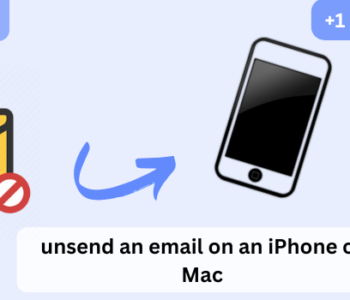 Software
Software
Do You Really Need a Mobile App Software for Your Business Success
In a world where nearly everyone carries a smartphone, it’s no surprise that businesses are asking: “Should we build a mobile app?” The mobile-first era has transformed consumer expectations, making speed, accessibility, and convenience non-negotiable. But does that mean every business truly needs one?
Let’s explore the key reasons a mobile app can benefit your business—and the situations where it might not be the right fit.
The Rise of Mobile in Modern Business
The numbers speak for themselves. Consumers spend over 80% of their mobile screen time using apps rather than web browsers. From online shopping to food delivery, digital banking to fitness tracking—apps dominate our daily habits.
For businesses, this shift opens doors to new engagement strategies. A well-designed mobile app can:
- Strengthen brand loyalty
- Improve customer service
- Boost sales through push notifications and personalised offers
- Streamline internal operations
Still, the decision to create a mobile app for business isn’t just about following trends—it’s about aligning with your customers’ behaviours and your long-term goals.
What Kind of Businesses Benefit Most from Mobile Apps?
While almost any business can build an app, not every business needs one. Here are some examples where mobile apps deliver tangible value:
- Retail and E-commerce: Apps make browsing, shopping, and payments seamless, increasing repeat purchases and cart value.
- Food and Beverage: Restaurants can use apps for online ordering, table bookings, and loyalty programmes.
- Fitness and Wellness: Gyms and trainers use apps for bookings, workout tracking, and virtual classes.
- Travel and Hospitality: Apps provide real-time updates, bookings, and personalised itineraries.
- Healthcare Providers: Apps allow appointment scheduling, teleconsultations, and medication reminders.
If your audience expects real-time interaction, personalised experiences, or self-service options, a mobile app can dramatically enhance their journey with your brand.
Mobile App vs. Mobile Website: What’s the Difference?
This is a common question for business owners. After all, doesn’t a responsive website serve the same purpose?
Not exactly.
A mobile-optimised website is essential—but it doesn’t offer the same level of engagement, performance, or functionality as an app. Apps can:
- Work offline (fully or partially)
- Send push notifications
- Access device features like GPS, camera, and calendar
- Provide smoother, faster performance
For example, if you run an event planning business, your app could send clients instant reminders, allow them to upload photos, and even offer location-based services—all things that would be clunky or unavailable through a website.
Cost Considerations: Are Apps Affordable?
Traditionally, building a mobile app required a large budget, a full development team, and several months of work. Today, things have changed.
Thanks to modern mobile app development software, businesses can now create robust, feature-rich apps without writing extensive code. These platforms offer:
- Drag-and-drop design tools
- Integration with payment gateways, CRMs, and social platforms
- Built-in analytics
- Cross-platform deployment (iOS and Android)
This drastically lowers development costs and makes app creation more accessible—even for small businesses.
Apps as a Branding Powerhouse
Think about how many times you check your phone each day. Now imagine your brand’s logo sitting on a customer’s home screen. That kind of visibility is priceless.
Mobile apps reinforce your brand identity, and every interaction inside the app is a touchpoint. You can shape the user experience down to the tiniest detail—colours, navigation, sound, animations—all working together to create a memorable digital journey.
When Is a Mobile App Not Necessary?
While apps offer many advantages, they’re not always the answer. Here are a few scenarios where your business might not need one—at least not yet:
- You have minimal digital interactions with customers.
- Your audience is older or prefers desktop experiences.
- Your existing website covers all your customer needs.
- Your budget and resources are limited.
In such cases, focusing on improving your mobile website, investing in SEO, or enhancing your social media presence could deliver better ROI.
Signs You’re Ready to Build a Mobile App
If you’re unsure whether it’s time to go mobile, here are some clear indicators:
- You get frequent customer requests for a mobile app.
- Your competitors already have apps that are performing well.
- You want to improve user engagement and retention.
- You’re expanding services that would benefit from real-time access.
- You’re seeking new ways to collect user data and feedback.
If this sounds like your business, it may be the right time to start planning your app strategy.
Final Thoughts: It’s About Strategy, Not Just Technology
In the end, asking “Is a mobile app really necessary?” is less about tech trends and more about your audience. What do they need? How do they interact with your brand? Can an app serve them better?
If the answer is yes, then leveraging mobile app development software can make the process smoother, faster, and more cost-effective than ever before.
A mobile app is more than just a feature—it’s a bridge between your business and your customer. And if that bridge leads to stronger relationships, smoother experiences, and increased loyalty, then the investment is absolutely worth it.









